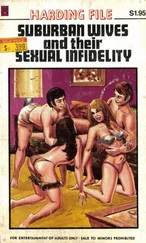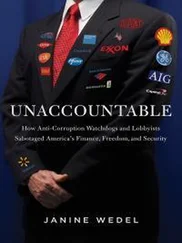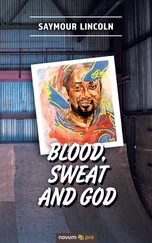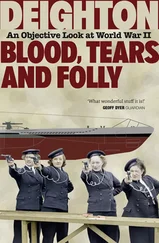Andrea Dworkin - Our Blood - Prophecies and Discourses on Sexual Politics
Здесь есть возможность читать онлайн «Andrea Dworkin - Our Blood - Prophecies and Discourses on Sexual Politics» весь текст электронной книги совершенно бесплатно (целиком полную версию без сокращений). В некоторых случаях можно слушать аудио, скачать через торрент в формате fb2 и присутствует краткое содержание. Жанр: Публицистика, на английском языке. Описание произведения, (предисловие) а так же отзывы посетителей доступны на портале библиотеки ЛибКат.
- Название:Our Blood: Prophecies and Discourses on Sexual Politics
- Автор:
- Жанр:
- Год:неизвестен
- ISBN:нет данных
- Рейтинг книги:3 / 5. Голосов: 1
-
Избранное:Добавить в избранное
- Отзывы:
-
Ваша оценка:
- 60
- 1
- 2
- 3
- 4
- 5
Our Blood: Prophecies and Discourses on Sexual Politics: краткое содержание, описание и аннотация
Предлагаем к чтению аннотацию, описание, краткое содержание или предисловие (зависит от того, что написал сам автор книги «Our Blood: Prophecies and Discourses on Sexual Politics»). Если вы не нашли необходимую информацию о книге — напишите в комментариях, мы постараемся отыскать её.
Our Blood: Prophecies and Discourses on Sexual Politics — читать онлайн бесплатно полную книгу (весь текст) целиком
Ниже представлен текст книги, разбитый по страницам. Система сохранения места последней прочитанной страницы, позволяет с удобством читать онлайн бесплатно книгу «Our Blood: Prophecies and Discourses on Sexual Politics», без необходимости каждый раз заново искать на чём Вы остановились. Поставьте закладку, и сможете в любой момент перейти на страницу, на которой закончили чтение.
Интервал:
Закладка:
is also of course no way of knowing if she would have received
different medical treatment had she not been a girl. But regardless, it all happened the way it happened, and so she was very ill most of her life. Since she was a girl, no one encouraged her to read books (though she tells me that she used to love to read and does not remember when or why she stopped
reading); no one encouraged her to go to college or asked her
to consider the problems of the world in which she lived. Because her family was poor, she had to work as soon as she finished high school. She worked as a secretary full-time, and
on Saturdays and some evenings she did part-time work as a
“salesgirl” in a department store. Then she married my father.
My father was a school teacher and he also worked nights
in the post office because he had medical bills to pay. He had
to keep my mother alive, and he had two children to support
as well. I say along with Joseph Chaikin in The Presence of
the Actor: “The medical-economic reality in this country is
emblematic of the System which literally chooses who is to
survive. I renounce my government for its inequitable economic system. ”*1 Others, I must point out to you, had and have less than we did. Others who were not my mother but
* Notes start on p. 113.


who were in her situation did and do die. I too renounce this
government because the poor die, and they are not only the
victims of heart disease, or kidney disease, or cancer— they
are the victims of a system which says a visit to the doctor is
$25 and an operation is $5, 000.
When I was twelve, my mother emerged from her heart
surgery and the stroke that had robbed her of speech. There
she was, a mother, standing up and giving orders. We had a
very hard time with each other. I didn’t know who she was, or
what she wanted from me. She didn’t know who I was, but she
had definite ideas about who I should be. She had, I thought, a
silly, almost stupid attitude toward the world. By the time I
was twelve I knew that I wanted to be a writer or a lawyer. I
had been raised really without a mother, and so certain ideas
hadn’t reached me. I didn’t want to be a wife, and I didn’t
want to be a mother.
My father had really raised me although I didn’t see a lot of
him. My father valued books and intellectual dialogue. He was
the son of Russian immigrants, and they had wanted him to be
a doctor. That was their dream. He was a devoted son and so,
even though he wanted to study history, he took a pre-medical
course in college. He was too squeamish to go through with it
all. Blood made him ill. So after pre-med, he found himself,
for almost twenty years, teaching science, which he didn’t like,
instead of history, which he loved. During the years of doing
work he disliked, he made a vow that his children would be
educated as fully as possible and, no matter what it took from
him, no matter what kind of commitment or work or money,
his children would become whatever they wanted. My father
made his children his art, and he devoted himself to nurturing
those children so that they would become whatever they could
become. I don’t know why he didn’t make a distinction between his girl child and his boy child, but he didn’t. I don’t know why, from the beginning, he gave me books to read, and
talked about all of his ideas with me, and watered every ambi


tion that I had so that those ambitions would live and be
nourished and grow—but he did. *
So in our household, my mother was out of the running as
an influence. My father, whose great love was history, whose
commitment was to education and intellectual dialogue, set
the tone and taught both my brother and me that our proper
engagement was with the world. He had a whole set of ideas
and principles that he taught us, in words, by example. He
believed, for instance, in racial equality and integration when
those beliefs were seen as absolutely aberrational by all of his
neighbors, family, and peers. When I, at the age of fifteen,
declared to a family gathering that if I wanted to marry I
would marry whomever I wanted, regardless of color, my
father’s answer before that enraged assembly was that he expected no less. He was a civil libertarian. He believed in unions, and fought hard to unionize teachers— an unpopular
notion in those days since teachers wanted to see themselves as
professionals. He taught us those principles in the Bill of
Rights which are now not thought of very highly by most
Amerikans— an absolute commitment to free speech in all its
forms, equality before just law, and racial equality.
I adored my father, but I had no sympathy for my mother. I
knew that she was physically brave— my father told me so
over and over—but I didn’t see her as any Herculean hero. No
woman ever had been, as far as I knew. Her mind was uninteresting. She seemed small and provincial. I remember that once, in the middle of a terrible argument, she said to me in a
stony tone of voice: You think I’m stupid. I denied it then, but
I know today that she was right. And indeed, what else could
one think of a person whose only concern was that I clean up
*
My mother has reminded me that she introduced me to libraries and that
she also always encouraged me to read. I had forgotten this early shared experience because, as I grew older, she and I had some conflicts over the particular books which I insisted on reading, though she never stopped me
from reading them. Sometime during my adolescence, books came to connote
for me, in part, my intellectual superiority over my mother, who did not
read, and my peership with my father, who did read.


my room, or wear certain clothes, or comb my hair another
way. I had, certainly, great reason to think that she was stupid,
and horrible, and petty, and contemptible even: Edward
Albee, Philip Wylie, and that great male artist Sigmund Freud
told me so. Mothers, it seemed to me, were the most expendable of people— no one had a good opinion of them, certainly not the great writers of the past, certainly not the exciting
writers of the present. And so, though this woman, my mother,
whether present or absent, was the center of my life in so
many inexplicable, powerful, unchartable ways, I experienced
her only as an ignorant irritant, someone without grace or
passion or wisdom. When I married in 1969 I felt free— free
of my mother, her prejudices, her ignorant demands.
I tell you all of this because this story has, possibly for the
Читать дальшеИнтервал:
Закладка:
Похожие книги на «Our Blood: Prophecies and Discourses on Sexual Politics»
Представляем Вашему вниманию похожие книги на «Our Blood: Prophecies and Discourses on Sexual Politics» списком для выбора. Мы отобрали схожую по названию и смыслу литературу в надежде предоставить читателям больше вариантов отыскать новые, интересные, ещё непрочитанные произведения.
Обсуждение, отзывы о книге «Our Blood: Prophecies and Discourses on Sexual Politics» и просто собственные мнения читателей. Оставьте ваши комментарии, напишите, что Вы думаете о произведении, его смысле или главных героях. Укажите что конкретно понравилось, а что нет, и почему Вы так считаете.












